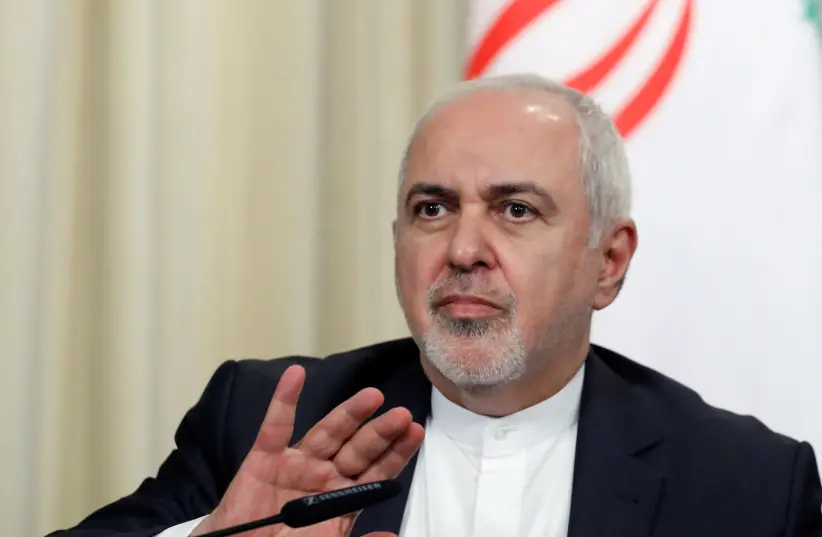The Iranian foreign minister complained about how he was forced to act for military interests instead of diplomatic ones.
Iranian Foreign Minister Mohammad Javad Zarif expressed discontent with the influence the Iranian Revolutionary Guards Corps has over diplomatic affairs, expressing rare criticism of former IRGC Quds Force commander Qasem Soleimani, in an interview leaked by Iran International and The New York Times on Monday.
Zarif stated during the interview with Iranian journalist Saeed Laylaz that Iran was pursuing a “cold war” strategy. The foreign minister added that he was forced by Soleimani to pursue diplomacy which would further Iran’s military interests in the region, but that he was never “able to ask Soleimani to do something that would serve my diplomatic moves,” according to the report.
Soleimani was assassinated by the United States in a drone strike in Baghdad in January 2020.
The foreign minister also complained about Soleimani’s refusal to stop using Iran’s national airline to transport arms to Syria, saying that flights to Damascus increased by six times due to pressure by the former Quds Force commander.
Zarif lamented that Iran placed priority on military operations, with his influence on Iranian foreign policy being “nil.” Throughout the interview, he reiterated that government policy was ruled by military interests, with government officials having little power in the face of demands by the military.
He stressed that the military’s intervention in diplomacy was “not worth it,” according to Iran International.
The foreign minister additionally claimed that a visit by Soleimani to Russia after the signing of the 2015 nuclear deal was intended to torpedo the deal. “That trip was made upon Moscow’s initiative without the Iranian Foreign Ministry having any control over it. Its objective was to destroy the JCPOA,” said Zarif, according to the British-based Persian television station.
Zarif claimed later in the interview as well that Russia had tried to thwart the JCPOA deal and that he had needed to use “rude and non-diplomatic language” in talks with Russian Foreign Minister Sergey Lavrov.
Concerning Iran’s operations in Syria, Zarif claimed that he was kept in the dark, saying that “It was former US foreign secretary John Kerry who told me Israel had launched more than 200 attacks on Iranian forces in Syria.” Iran International cast doubt on the likelihood that this claim was true, as Israeli airstrikes in Syria had previously been reported in international media.
The foreign minister claimed that he also was kept in the dark about the ballistic missile strike on Ain al-Assad last year, which was carried out in response to the assassination of Soleimani, as well as about the downing of a Ukrainian passenger plane by the IRGC during the missile strike.
“I said, ‘If it was hit by a missile, tell us so we can see how we can resolve it,’” Zarif said about a meeting that took place shortly after the plane was downed, according to The New York Times. “God is my witness; the way they reacted to me is as if I had denied the existence of God.”
According to the Times, Saeed Khatibzadeh, a spokesman for the Foreign Ministry, called the leak of the interview “unethical politics” and said that the leaked portions did not express Zarif’s true feelings about Soleimani.
The leak led to critics calling for the foreign minister’s resignation and concerns by supporters that it could negatively impact his aspirations in the upcoming presidential elections in Iran.
The report comes as Iran conducts talks with the US and European nations in Vienna in an attempt to return to the 2015 nuclear deal.
 Eurasia Press & News
Eurasia Press & News




